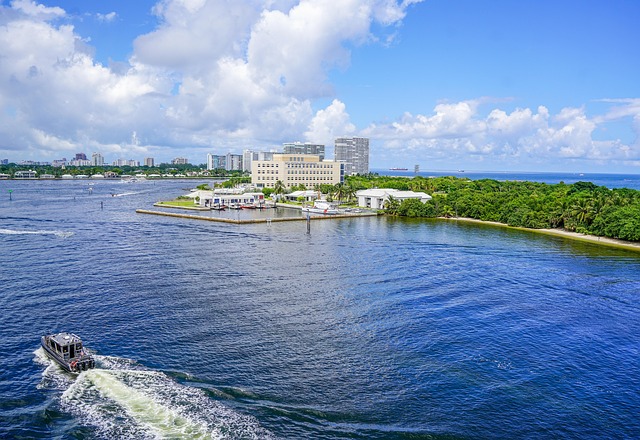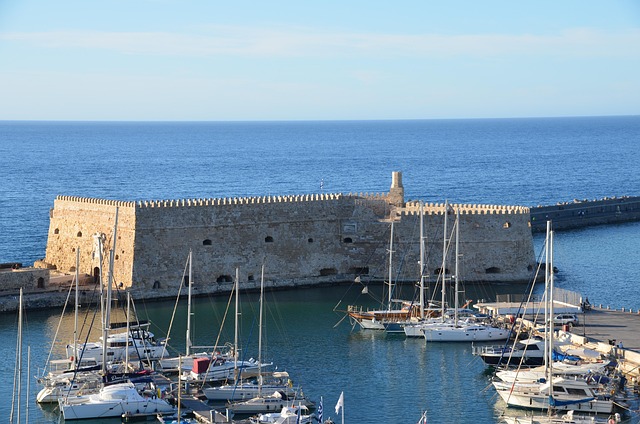Category: Fort Lauderdale fl
Coastal city in Florida, north of Miami, known for its beaches and canals.
Fort Lauderdale FL: A Comprehensive Analysis
Introduction
Welcome to an in-depth exploration of Fort Lauderdale, a vibrant city located along Florida’s breathtaking coastline. This article delves into the multifaceted aspects of what defines Fort Lauderdale as a unique urban center, its economic hub, and cultural gem within the global landscape. With a rich history and dynamic present, Fort Lauderdale offers a captivating narrative that resonates with residents, visitors, and scholars alike. By examining various facets, from its economic prowess to technological innovations, we aim to provide a comprehensive understanding of this thriving metropolis.
Understanding Fort Lauderdale FL: A Coastal Oasis
Definition and Core Features:
Fort Lauderdale, often referred to as “The Venice of America” for its intricate network of canals, is a coastal city in Broward County, Florida. Boasting a population of over 160,000 residents (as of 2023), it is renowned for its picturesque beaches, lavish waterfront properties, and bustling entertainment district. The city’s landscape encompasses a diverse mix of residential neighborhoods, high-rise towers, luxury yachts, and a thriving business community.
Historical Context:
Founded in the late 19th century, Fort Lauderdale has evolved from a modest military outpost to a premier tourist destination and cultural center. The city’s rich history includes influences from Native American tribes, Spanish explorers, and a period of development spurred by the 1920s land boom. This historical tapestry has shaped its unique character, evident in architectural styles, cultural festivals, and local traditions.
Significance:
Fort Lauderdale plays a pivotal role in Florida’s economy and tourism industry. Its strategic location on the Atlantic Coast attracts visitors from around the world, contributing significantly to the state’s revenue. Beyond its economic impact, the city is celebrated for its commitment to environmental conservation, vibrant arts scene, and diverse culinary experiences, making it an attractive destination for residents and tourists alike.
Global Impact and Trends
Fort Lauderdale’s influence extends far beyond its local boundaries, impacting global trends in urban development, tourism, and lifestyle.
-
Tourism as a Global Driver: As a top tourist destination, Fort Lauderdale attracts over 12 million visitors annually (as per 2022 data), generating substantial revenue for the city and Florida state. Its reputation as a beach paradise, cultural hub, and gateway to the Everglades draws international travelers, contributing to the global tourism industry’s growth.
-
Real Estate Trends: The city’s vibrant real estate market reflects global trends in luxury living. Fort Lauderdale is known for its opulent waterfront properties, reflecting the global demand for coastal residential spaces. According to a 2023 report by Knight Frank, Fort Lauderdale is among the top cities globally for high-end real estate investment.
-
Sustainable Development: Embracing sustainable practices, Fort Lauderdale has implemented eco-friendly initiatives, including beach clean-up programs and renewable energy projects. These efforts align with global movements towards environmentally conscious urban development, positioning the city as a model for others to follow.
Economic Considerations
Market Dynamics and Key Sectors:
-
Tourism and Hospitality: Tourism is the bedrock of Fort Lauderdale’s economy, supporting thousands of local jobs and businesses. The city boasts a diverse range of hotels, resorts, restaurants, and entertainment venues that cater to visitors from around the globe.
-
Real Estate and Construction: The robust real estate market has fueled economic growth, with high-rise developments and luxury condos attracting significant investment. According to local data, over $5 billion in construction projects are underway or planned, highlighting the sector’s vitality.
-
Retail and Wholesale Trade: Fort Lauderdale serves as a major distribution hub for retailers, with numerous logistics companies and warehouses located within the city limits. This sector contributes significantly to employment and tax revenue.
Investment Patterns:
-
Domestic Investment: Florida’s favorable business climate has attracted substantial domestic investment, with Fort Lauderdale benefiting from the influx of businesses and entrepreneurs. The state’s no-state-income-tax policy is a significant draw for retirement communities and high-net-worth individuals.
-
International Investments: Foreign direct investment (FDI) in Fort Lauderdale has been on the rise, particularly from countries like Canada, the UK, and Latin America. These investments span various sectors, including real estate, hospitality, and technology startups.
Economic Impact and Systemic Role:
Fort Lauderdale’s economic significance within Florida is evident in its contribution to state-level GDP and job creation. The city serves as a regional economic engine, supporting neighboring communities and attracting businesses with its skilled workforce and favorable business environment.
Technological Advancements
Fort Lauderdale has embraced technological innovations, positioning itself at the forefront of smart cities and digital transformation.
-
Smart City Initiatives: The city has launched various smart city projects, including a comprehensive digital infrastructure for public services and transportation. The Fort Lauderdale Smart City app provides residents with real-time information on parking, traffic, and local events, enhancing their quality of life.
-
Digital Infrastructure: Advanced fiber-optic networks and 5G connectivity have been deployed throughout the city, enabling high-speed internet access and supporting the growth of tech startups. This digital infrastructure is crucial for attracting young professionals and fostering innovation.
-
Tech Startup Ecosystem: Fort Lauderdale has emerged as a thriving hub for technology startups, particularly in fields like fintech, cybersecurity, and healthcare tech. The presence of universities and research institutions, such as Nova Southeastern University, contributes to a skilled talent pool, fueling the startup ecosystem.
Policy and Regulation: Shaping Urban Development
The city’s development is guided by a well-defined legal framework, ensuring balanced growth and addressing various sectors.
-
Zoning and Land Use: Fort Lauderdale employs a comprehensive zoning ordinance to regulate land use, preserving residential areas, commercial hubs, and natural spaces. This policy ensures the harmonious coexistence of diverse neighborhoods and protects the city’s unique character.
-
Environmental Regulations: Strict environmental policies aim to protect the city’s natural resources, including its precious coastline. These regulations cover beach preservation, water quality standards, and sustainable building practices, ensuring Fort Lauderdale remains an eco-conscious urban center.
-
Business and Tax Policies: The city offers a business-friendly environment with incentives for startups and small businesses. Tax breaks and streamlined permitting processes encourage investment and entrepreneurship, contributing to economic growth.
Challenges and Criticisms: Navigating Urban Issues
Despite its many strengths, Fort Lauderdale faces challenges that require strategic solutions.
-
Affordability: Rapid development has led to rising housing costs, making it less affordable for long-time residents. Addressing this issue requires a balanced approach, including the promotion of affordable housing projects and support for low-to-middle-income families.
-
Traffic Congestion: The city’s popularity as a tourist destination and growing population have contributed to traffic congestion. Implementing intelligent transportation systems and promoting public transit can help mitigate these issues.
-
Environmental Concerns: While the city has made strides in environmental conservation, challenges remain, particularly regarding water quality and coastal erosion. Continued efforts are needed to protect the city’s natural resources and ensure sustainable development.
Case Studies: Successful Applications of Fort Lauderdale Concepts
1. Waterfront Revitalization:
The transformation of Fort Lauderdale’s waterfront is a testament to successful urban renewal. The city invested in revitalizing its canals and rivers, creating scenic walking paths, bike lanes, and picturesque waterfront parks. This project not only enhanced the aesthetic appeal but also increased property values and attracted new businesses, boosting the local economy.
2. Smart Transportation:
Fort Lauderdale’s intelligent transportation system (ITS) is a case study in efficient urban mobility. The city implemented a comprehensive network of smart traffic signals, real-time transit information, and parking apps. These technologies have reduced congestion, improved travel times, and enhanced the overall passenger experience, setting a benchmark for other cities to follow.
3. Cultural District Development:
The Fort Lauderdale Cultural District, a vibrant arts and entertainment hub, is a prime example of community engagement and cultural promotion. This initiative brought together local artists, businesses, and government agencies to revitalize underutilized spaces. The district now hosts diverse cultural events, attracting visitors and fostering a sense of community pride.
Future Prospects: Looking Ahead for Fort Lauderdale
Growth Areas and Emerging Trends:
-
Sustainable Tourism: Fort Lauderdale is poised to expand its sustainable tourism initiatives, focusing on eco-friendly accommodations and experiences. The city can capitalize on its natural attractions, such as the Everglades and beaches, by promoting ecotourism and adventure activities.
-
Tech and Innovation Hub: With its growing tech startup ecosystem, Fort Lauderdale has the potential to become a major innovation hub. Continued investment in digital infrastructure and research partnerships will attract talent and capital, fostering a vibrant tech community.
-
Smart City Expansion: The city’s smart city projects will evolve, incorporating advanced technologies like AI and IoT. These innovations will enhance public safety, energy efficiency, and urban planning, making Fort Lauderdale a model for intelligent cities.
Strategic Considerations:
-
Preserving Cultural Heritage: As the city grows, preserving its unique cultural heritage remains vital. Fort Lauderdale can promote historical conservation efforts, cultural festivals, and artistic expressions to maintain its identity while attracting diverse visitors.
-
Climate Resilience: Addressing climate change is essential for the city’s long-term sustainability. Implementing adaptive measures, such as sea level rise mitigation strategies and resilient infrastructure, will ensure Fort Lauderdale remains a thriving coastal community.
-
Inclusivity and Equity: Efforts to make the city more inclusive and equitable should be prioritized. This includes affordable housing initiatives, promoting diversity and cultural understanding, and ensuring access to quality education and healthcare for all residents.
Conclusion: Illuminating Fort Lauderdale’s Brilliance
Fort Lauderdale stands as a testament to urban excellence, seamlessly blending natural beauty, vibrant culture, and economic dynamism. Through its comprehensive approach to development, the city has achieved remarkable growth while preserving its unique character. As a global destination and regional economic powerhouse, Fort Lauderdale continues to inspire and shape urban landscapes worldwide. By embracing innovation, sustainability, and community engagement, this coastal gem ensures a prosperous and resilient future.
FAQ Section: Answering Common Queries
Q: What makes Fort Lauderdale unique compared to other Florida cities?
A: Fort Lauderdale distinguishes itself with its intricate canal system, often referred to as the “Venice of America.” The city’s vibrant waterfront, luxurious living, and diverse cultural scene set it apart from many other Florida destinations.
Q: How does Fort Lauderdale contribute to Florida’s economy?
A: Fort Lauderdale is a significant economic engine for Florida, driving tourism revenue, supporting local businesses, and attracting investment. Its robust real estate market, thriving hospitality industry, and strategic location make it a vital contributor to the state’s GDP.
Q: What are some notable environmental initiatives in Fort Lauderdale?
A: The city has implemented various eco-friendly programs, including beach clean-up campaigns, water quality monitoring, and sustainable building practices. Fort Lauderdale is also at the forefront of coastal protection efforts, addressing challenges like sea level rise and beach erosion.
Q: Is Fort Lauderdale a safe place to live and visit?
A: Fort Lauderdale has a relatively low crime rate compared to many other urban areas, making it safe for residents and visitors. The city’s police department and community watch programs contribute to its overall safety, though as with any popular tourist destination, vigilance is advised.
Q: What are the top attractions for tourists in Fort Lauderdale?
A: Tourists are drawn to Fort Lauderdale’s beautiful beaches, vibrant nightlife, and diverse cultural offerings. Top attractions include the Fort Lauderdale Beach, Las Olas Boulevard (known as the “Rodeo Drive of the South”), the Museum of Art, and the historic Fort Lauderdale Historical Society.
Elevate Your Online Presence: Fort Lauderdale SEO Experts Get You Noticed, Save You Money
Boost Local Traffic & Save: Top Fort Lauderdale SEO Experts Tailor Growth for Your Business
Transform Your Online Presence: Top Fort Lauderdale SEO for Proven Results & Cost Savings
Boost Profits: Fort Lauderdale’s Top SEO Experts Share Their Secrets

Elevate your Fort Lauderdale business to new heights with our professional Fort Lauderdale SEO that…….
Elevate Your Fort Lauderdale Business with Top-Tier ROI SEO

Looking to maximize your online investment while outperforming the competition in Port Fort Lauderda…….
Unleash Maximum Online Traffic: Fort Lauderdale SEO Experts Deliver Results
Boost Business Visibility: Save with Port Fort Lauderdale SEO Optimization

Elevate your business in the competitive Fort Lauderdale market with expert Search Port Fort Lauderd…….
Get Found, Save Money: Fort Lauderdale SEO Experts Boost Your Revenue
Unleash Your Business Potential: Top Fort Lauderdale SEO Agency for Proven Growth

Are you tired of struggling to gain online visibility in the competitive Port Fort Lauderdale market…….













